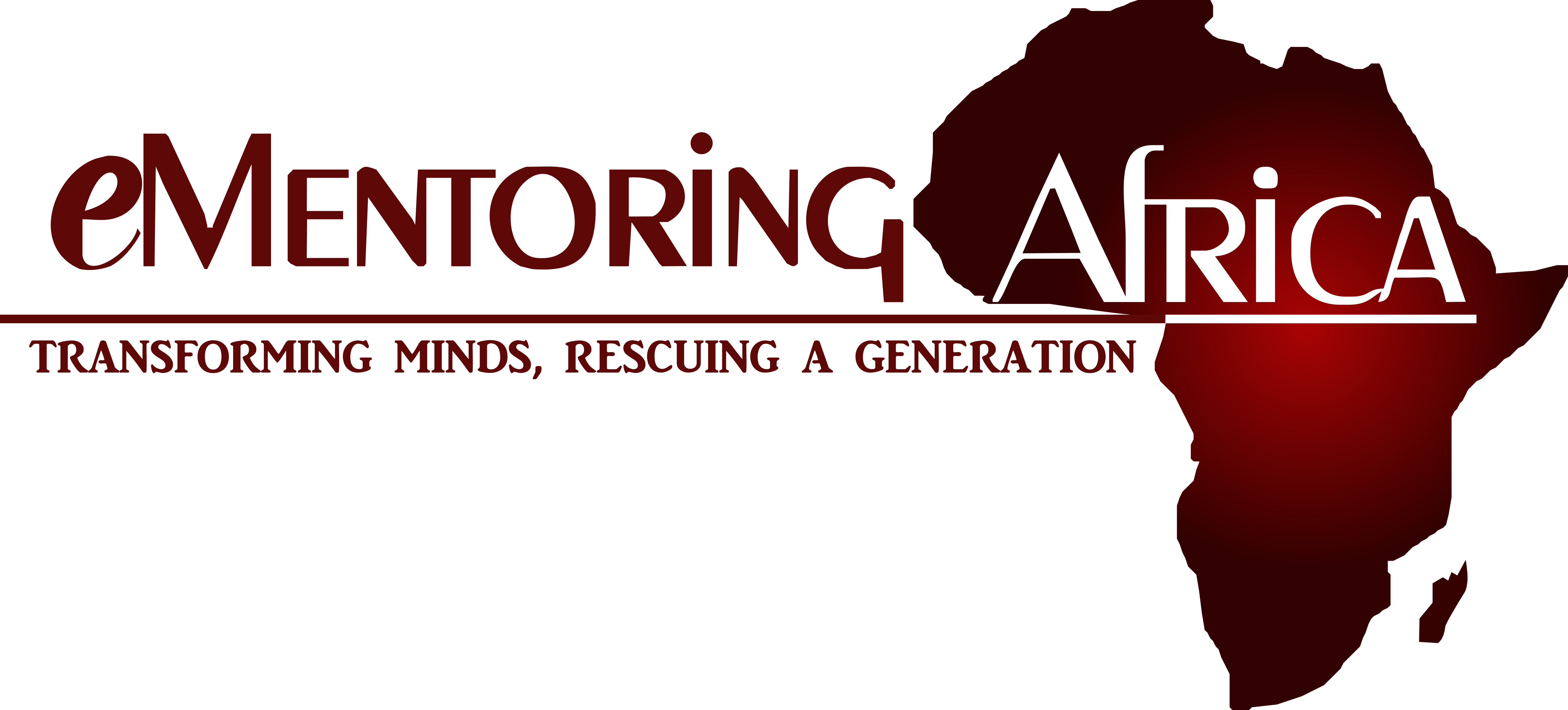According to UNESCO, education is a fundamental human right and essential for the exercise of all other human rights. It promotes individual freedom and empowerment and yields important development benefits. Yet millions of children and adults remain deprived of educational opportunities.
This deprivement is greatly felt by persons who are confined in short-term detention facilities as they await trial, sentencing, execution, deportation of some form of corporal punishment. Prisons are also used for long-term and convicted offenders who are to be simultaneously punished, deterred, and reformed (rehabilitated) while being isolated (incapacitated) from the community.
Realizing that this confinement can have a detrimental effect on the prisoners, the Government of Kenya has over the years introduced education programs in the prisons, thus giving inmates an opportunity to further their education despite the hardship conditions they find themselves in. This intervention is in line with the 4th UN sustainable development goal that advocates for quality education: “Ensure inclusive and quality education for all and promote lifelong learning”. Further Kenya’s Vision 2030, endeavors to invest in the people of Kenya to improve the quality of life of its citizens by targeting a cross-section of human and social welfare projects and programmes such as education and training.
It is against this background that eMentoring Africa (eMA) in partnership and Ms. Jayne Marquard launched an intervention to support the education program at Naivasha Maximum Prison to improve the current poor learning conditions at the prison. The project which started in 2014 is further enhanced by a mentorship program where eMA volunteers offer mentorship sessions to the inmate students three times a year (during the official school holiday). The Naivasha Maximum Prison has the largest inmate’s population in Kenya (approximately 3000) who come from all over the country. Our goal is that once a prison term is completed, the inmate will be well educated and mentally prepared for transition back to the community.
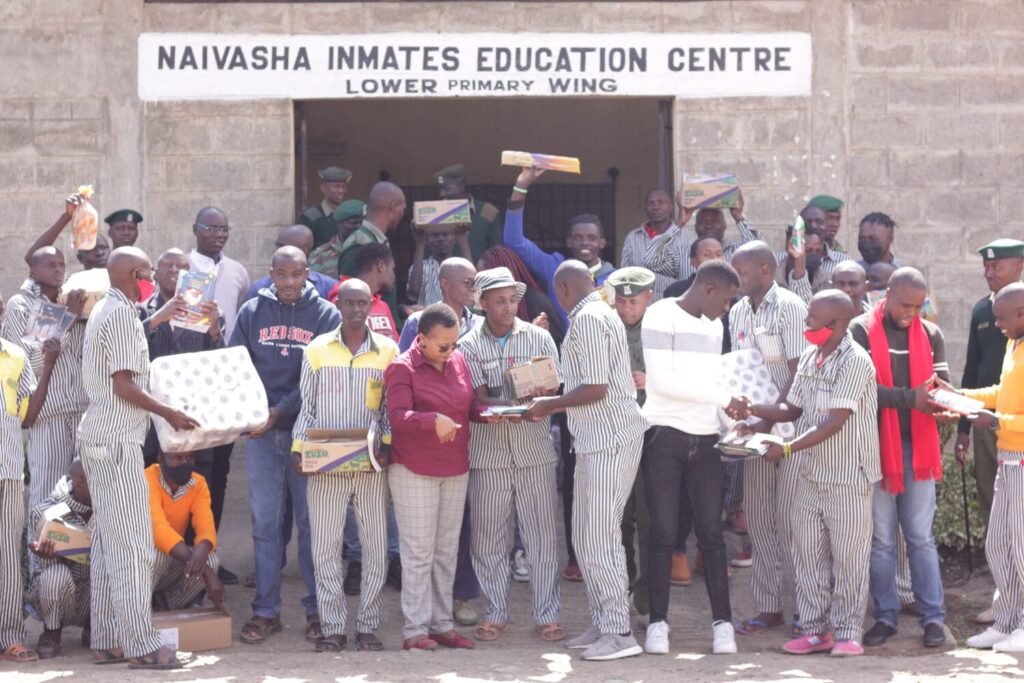
The intervention seeks to benefit the inmates by:
- Providing basic education to long-term and life-sentence inmates at the prison
- Motivating, encouraging, and giving hope to inmates
- Strengthening capacity of teachers
- Equipping the library with books and other resources, including eLearning systems
- Creating a website to disseminate information on the education program and solicit support from the public
- Providing a “soft-landing” reintegration with community) after release from prison as the inmate is unlikely to commit another crime because of the acceptance and family support
Our entails structured educational/career mentorship sessions targeting the inmates in the school program – especially those in high school. The mentorship sessions are organized every term and are mentee-paced to ensure all they learn is well understood considering that majority of the students are way above the school going age (over 40 years old)
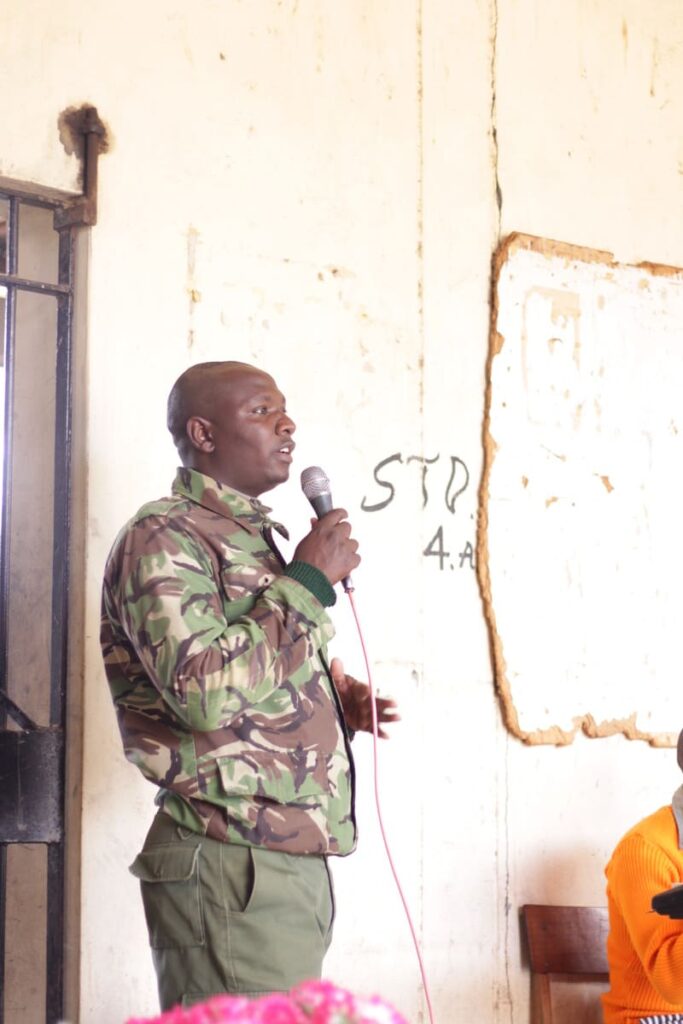
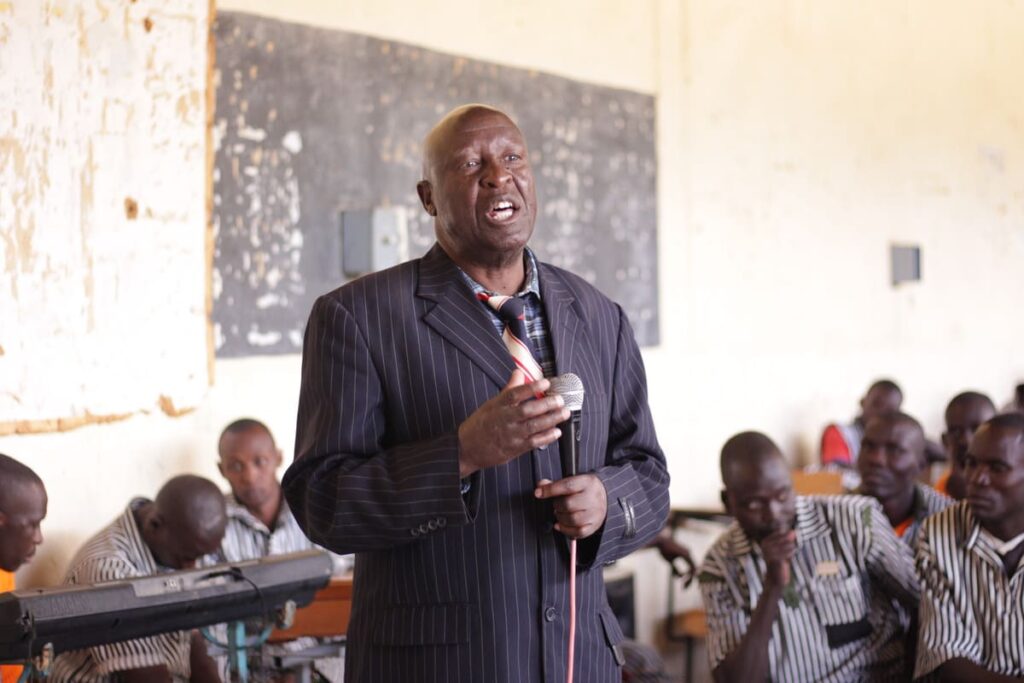
Naivasha Prison 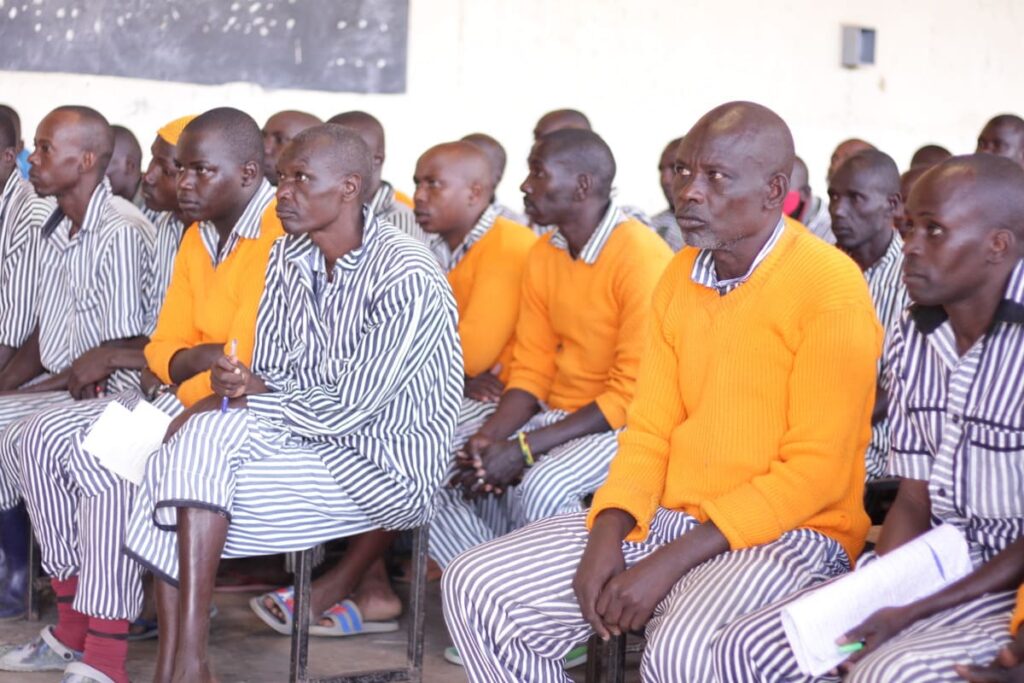
Naivasha Prison detainees 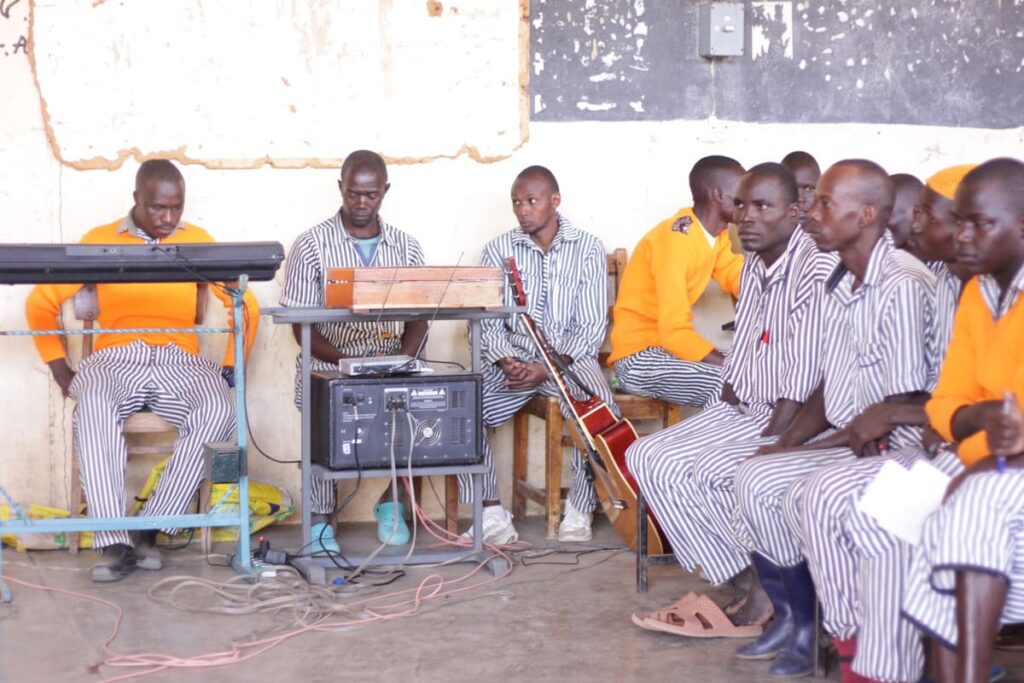
Naivasha Prison band
